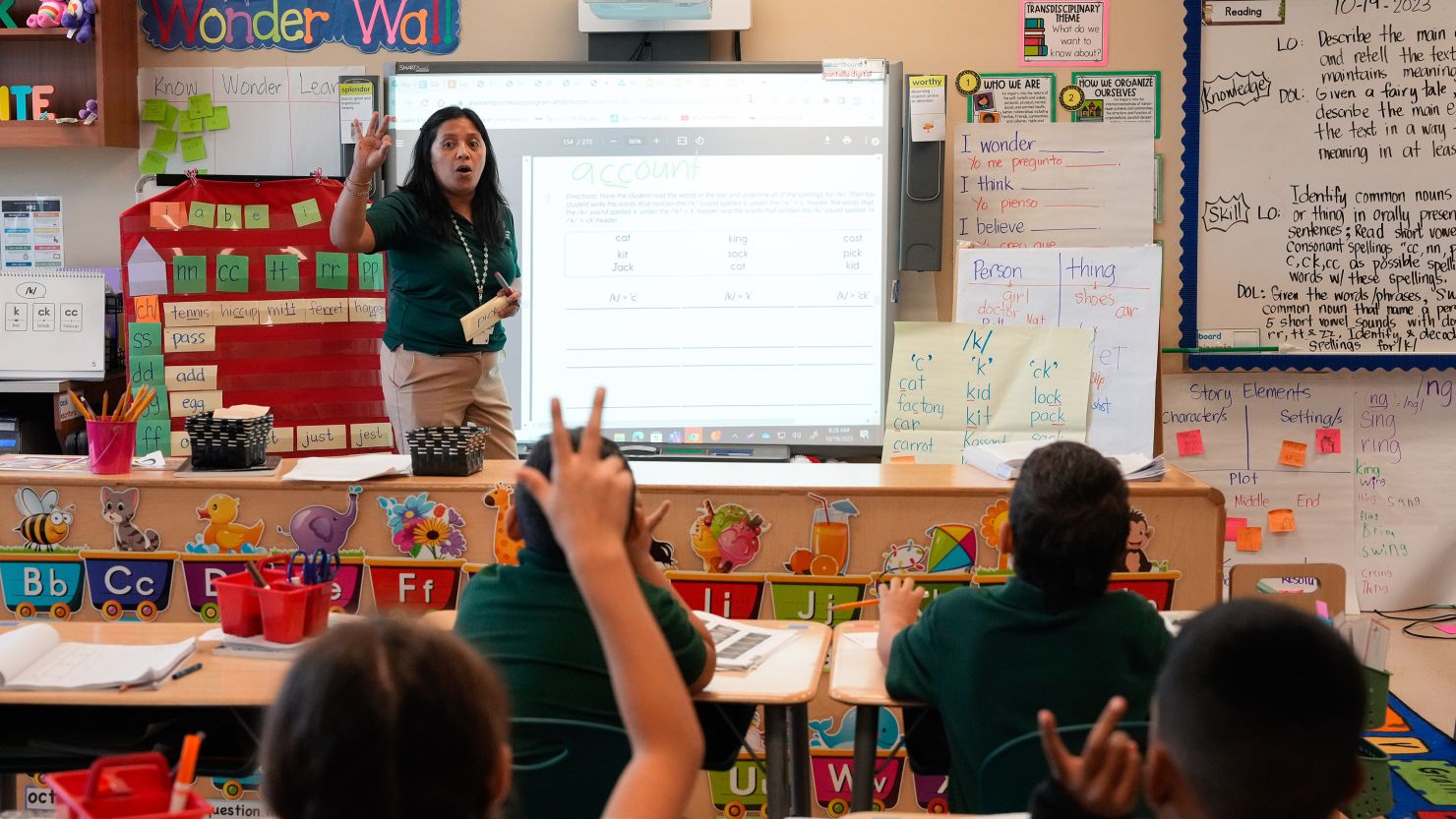How play-based learning in Kindergarten enhances early education
Wiki Article
Checking out the Benefits of Kindergarten Programs: A Comprehensive Overview to Very Early Education And Learning
Kindergarten programs play a pivotal duty fit a kid's early academic experience. They provide an organized setting where young students can establish crucial social skills, emotional durability, and cognitive capacities. These fundamental skills are vital as youngsters relocate into even more formal schooling. Understanding just how these programs add to a kid's growth reveals much concerning their long-lasting educational trajectory. What particular benefits do these very early experiences use, and just how do they influence a kid's future?The Significance of Social Abilities Development
While lots of aspects of early education concentrate on scholastic abilities, the growth of social skills in kindergarten programs is similarly important. Social skills encompass the capacity to connect properly, work together with peers, and browse social scenarios, all of which are important for a child's general development. In preschool, kids find out to share, take turns, and deal with problems, cultivating a sense of neighborhood and belonging. These experiences allow young learners to create and develop relationships compassion, preparing for positive connections in the future.Educators play a pivotal function in assisting in social skill advancement with structured activities and assisted interactions. Via team projects and play, youngsters exercise vital skills such as listening, working out, and understanding varied point of views. In addition, these interactions assist kids build confidence and self-esteem, crucial parts for their personal and scholastic journeys. In general, nurturing social abilities in preschool improves youngsters's experiences and prepares them for the intricacies of social life past school.

Building Psychological Resilience in Young Learners
Building emotional durability in young learners is essential to their overall health and success in various facets of life. Kindergarten programs supply a structured environment where children can find out to navigate their feelings successfully. Through led activities and interactions, educators help children identify and express their sensations, promoting a sense of self-awareness.These programs often consist of techniques for dealing with obstacles, such as analytic tasks and role-playing situations that prepare youngsters for real-life scenarios. By urging collaboration and empathy, young learners develop strong social connections, which are vital for emotional support.
Educators play a crucial role in modeling strength by showing just how to take care of stress and difficulty. As children observe these actions, they internalize important coping mechanisms, furnishing them to manage future emotional difficulties with greater simplicity. Generally, supporting psychological resilience in very early education lays a solid foundation for long-lasting psychological health and wellness and adaptability.
Enhancing Cognitive Capacities Through Structured Knowing
As youngsters involve in structured discovering experiences within kindergarten programs, their cognitive abilities are considerably enhanced. These programs present age-appropriate tasks that promote vital thinking and analytical skills. For instance, hands-on tasks such as puzzles and building blocks advertise spatial understanding and logical reasoning.In addition, interactive narration and group conversations foster language growth, broadening vocabulary and comprehension. Through organized routines, children learn to comply with instructions, boosting their executive operating abilities, which are important for future academic success.
Social interactions within these programs likewise play a significant function, as youngsters find out to team up and interact properly, further enhancing cognitive growth.
In addition, integrating play-based knowing allows youngsters to discover concepts in a fun and engaging means, reinforcing their understanding and retention of expertise. In general, structured learning in kindergarten lays a strong structure for cognitive growth, preparing children for the difficulties of higher education and learning.
Promoting a Love for Lifelong Learning

Additionally, positive interactions with peers and educators add to an atmosphere where understanding is considered as pleasurable and satisfying. This supportive atmosphere helps instill inherent inspiration and reinforces the idea that education and learning is a continuous trip instead of a destination.
As youngsters discover their interests and toughness, they are most likely to pursue understanding past the class, laying the structure for a long-lasting commitment to knowing. Ultimately, preschool programs play an essential duty fit passionate learners who accept educational possibilities throughout their lives.
Preparing for Future Academic Success
While foundational skills are essential for early students, preschool programs likewise play an essential function in preparing children for future scholastic success. These programs present important ideas such as proficiency and numeracy, ensuring that youngsters create the cognitive capacities needed for even more advanced discovering. By participating in organized tasks, students boost essential thinking and analytic skills, laying a solid foundation for their educational trip.Preschool cultivates social-emotional growth, allowing youngsters to browse joint jobs and build relationships with peers. This joint environment imparts a sense of belonging and increases confidence, which is essential for academic perseverance.
Additionally, direct exposure to diverse understanding experiences in kindergarten cultivates adaptability, furnishing youngsters to deal with numerous subjects and difficulties in succeeding qualities (Grade School). Inevitably, by supplying a well-rounded early education, kindergarten programs ensure that youngsters are not only ready for first quality however additionally planned for ongoing academic achievement throughout their academic jobs
Regularly Asked Questions
What Age Is Suitable for Beginning Preschool Programs?
The ideal age for beginning kindergarten programs is generally in between five and six years old. This age enables children to create necessary social, emotional, and cognitive abilities, preparing them for future academic success and individual development.How Do I Select the Right Kindergarten Program for My Kid?
To select the best kindergarten program, one need to consider factors such as educational program, instructor qualifications, class dimension, area, and the college's philosophy. Observing the setting and event feedback from various other moms and dads can sites also be advantageous.Exist Any State Needs for Kindergarten Enrollment?
Numerous states have certain needs for preschool enrollment, consisting of age restrictions and documentation such as copyright or proof of residency (Grade School Peoria). Parents should consult their neighborhood education and learning authority to comprehend the exact requirements in their locationWhat Should Moms and dads Anticipate During a Regular Preschool Day?
During a normal kindergarten day, moms and dads can expect organized tasks go to these guys including circle time, imaginative play, standard scholastic lessons, treat breaks, and social interaction, all developed to foster learning and development in a nurturing atmosphere.Exactly How Can Moms And Dads Support Discovering at Home in Addition to Kindergarten?
Moms and dads can sustain learning at home by involving in routine reading, including academic video games, establishing a consistent routine, motivating inquisitiveness with questions, and developing a positive, caring environment that fosters exploration and creative thinking.Preschool programs play an essential duty in shaping a child's early educational experience. Preschool programs give an organized atmosphere where kids can discover to browse their emotions effectively. As youngsters involve in structured discovering experiences within kindergarten programs, their cognitive capabilities are significantly boosted. By engaging kids in diverse tasks-- such as storytelling, hands-on experiments, and collaborative tasks-- preschool programs cultivate interest and exploration. While foundational skills are important for very early students, kindergarten programs also play an essential role in preparing youngsters for future scholastic success.
Report this wiki page